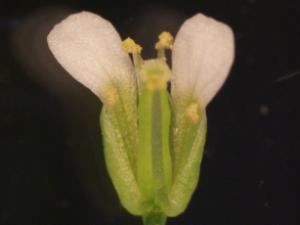

Research Bio
Luan Laboratory studies how plants perceive and respond to environmental signals. Research effort is focused on calcium signaling mechanisms that entail "coding" of calcium signatures by calcium channels and "decoding" of calcium signatures by the CBL-CIPK network. Downstream of these early signaling events, plants respond and adapt to environmental changes by altering the biochemical processes including those at the plasma membrane, vacuolar membrane, and in the chloroplasts.
Their goal is to understand the molecular mechanism underlying plant response and adaptation to its environment. Because higher plants can not “walk away” from their environment, they have evolved elaborate mechanisms to integrate their outside world into the program of their life cycle control. As environmental conditions constantly change, plants rapidly perceive those changes and respond by physiological and developmental changes. Luan Laboratory is interested in illustrating the molecular networks that connect the environmental inputs to the physiological responses in plants. The understanding of biochemical pathways that allow plants to adapt to constantly changing environment is also among our primary research goals.
Research Expertise and Interest
microbial biology, plant biology
In the News
Understanding the “Romantic Journey” of Plant Reproduction
Four faculty members named fellows of AAAS
Four University of California, Berkeley, faculty members have been named fellows of the American Association for the Advancement of Science (AAAS), the association announced today (Thursday, Nov. 29).

